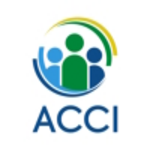
2024 Annual Conference
May 21–23, 2024
Hyatt Regency Milwaukee, Milwaukee, WI, USA
IMPORTANT NOTICE: The date, time, and room assignment of YOUR presentation is SUBJECT TO CHANGE.
Proposal authors can use this tool to see where they have been placed in the program agenda for an Oral or Poster Session.
Scroll down to search by the Submitter or Author Name, by Date/Time, or by Keywords.
Confirm your place in the schedule by following the instructionss that were emailed to you. Each presentation must have a separate paid registration. Contact the ACCI office immedicately by email at admin@consumerinterests.org to report any conflict, all corrections to the details of the presentation (including author names and the order they are listed as this is how it will be in the final program), or if you have any questions. Please be sure to reference the session title(s), date(s), and time(s) when you contact us.
B1a A Systematic Conceptual Review of Financial Access
Short Description
To manage their financial well-being, consumers need access to a variety of financial products and services for meeting their saving, spending, and investment needs. Given its importance to support a variety of household financial functions, individuals’ access to financial products and services, or “financial access,” has been of growing interest in practice and research. This study uses the systematic conceptual review method and grounded theory to create financial access concepts, a definition, domains, and items that emerge from the literature. The definition reads, “An individual who financial access (i.e., encounters no intrinsic or external barriers) has freely chosen to utilize available, affordable, appropriate, convenient, beneficial, reliable, and secure household financial-related products, services, practices, and policies provided by formal financial institutions and governments that contributes to their financial and economic well-being.” The identified domains are a) Mainstream Financial Products and Services; b) Institutional Practices of Available Mainstream Financial Service Providers; c) Individual Resources and Intrinsic Qualities and Abilities; d) Individual Financial Action and Perceptions; and e) Financial Products or Services Utilized by Social Programs to Provide Benefits. Results suggest the need to broaden the focus of financial access and well-being policies and practices beyond ownership of financial products and services.
Type of presentation
Accepted Oral Presentation